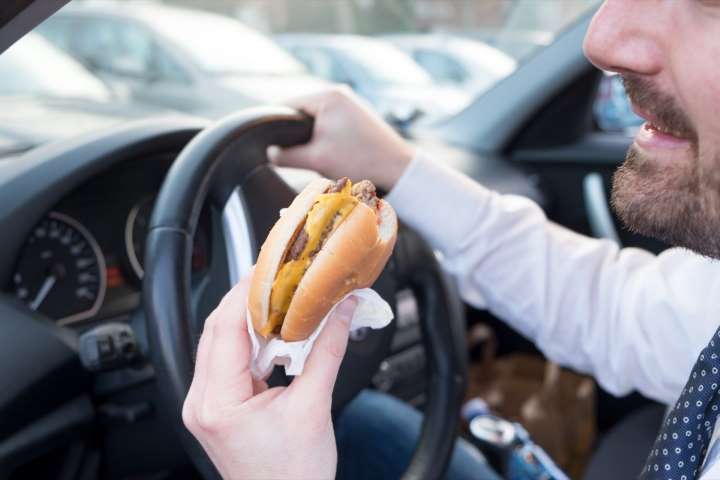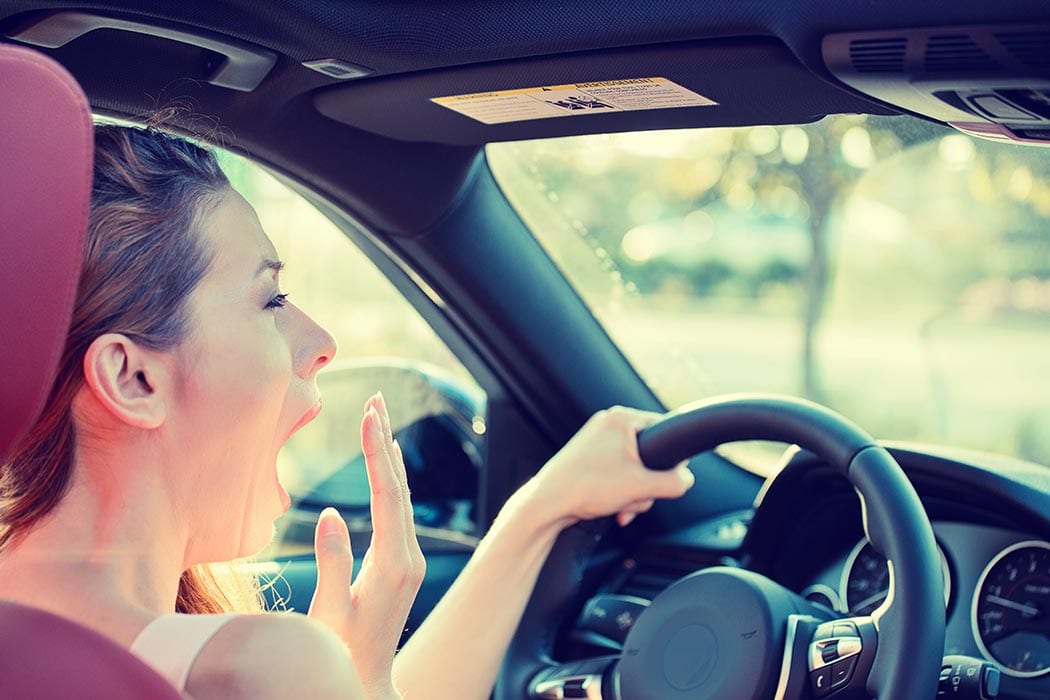Dangers of Driving While Fatigued
Separate the myths from the real dangers of driving while you are fatigued or feeling drowsy may save your life or the life of your loved ones.
Myth: You can be drowsy but not drunk.
While everybody knows the implication of drunken driving, many people are not much concerned about sleepiness. But it may prove to be fatal. Researches reveal that as far as driving impairment is concerned, not sleeping for eighteen hours or twenty-four hours at a stretch can affect the body in the same way as being drunk. Drowsiness impairs proper judgment and reaction time.
Myth: Caffeine can perk you up.

Caffeine, taken through soft drink, coffee, or gum can induce temporary alertness. But you must know that it takes about half an hour for the effect to set in. But this may not have any effect in case of over-exhaustion or people who are long used to it.
Myth: Drowsy driving takes place only during the night.
Most of the sleep-related accidents take place early in the morning (between 4 AM to 6 AM). The other period is the rush hour between 2 PM to 4 PM. About twenty-five percent, commuters admit that they do indeed feel drowsy during some days.
Myth: Only old and elderly people are prone to fall asleep while driving.
Contrary to popular belief, more than fifty percent of drivers, responsible for crashes with fatigue-related issues, are young people – less than 25 years of age. The people who are prone to fatigue-driving include shift workers, people suffering from sleep disorders, and adults with children. The risk increases by six times for night-shift workers. Working for more than sixty hours in a week and disruption of the sleep cycle can result in fatigue driving.
Myth: Cool air or music promotes wakefulness.
Remember how well you sleep during winter nights. So, dispel any misgiving that cool air will keep you awake while driving. The AC or music would be of little help to fight exhaustion.
Myth: It is better to avoid food while driving.

It is true that a sumptuous meal would surely make you sleepy. But not eating anything is of little help as driving is also energy-sapping. So, take snacks with carbs and proteins in it.
Myth: You can’t prevent a drowsy person from driving.
The level of drowsiness in a person admittedly is difficult to judge. Having said that, it is true that keeping a drowsy person away from the wheel can surely prevent mishaps. So, if you find somebody repeatedly yawning or you are aware that he hasn’t slept for six hours, then talk to him before he hits the road.
Fact: Dangers of driving while you are fatigue is real.
As per the government estimates, as many as 100,000 accidents and over 1,500 deaths are due to driver fatigue. This could be more if you take into account the fact that thirty-three percent of the 103 million people admit that they have fallen asleep while driving.
Fact: Having a companion during driving helps.
Another person sitting by the side is of immense help, especially during long trips. He can keep an eye on the road and can keep you awake by talking. And it is better if he can drive as well. Both of you can take turns to drive every couple of hours or after every 100 miles.
Fact: Short Naps helps a lot but it does not completely eliminate the dangers of driving while you feel fatigued.
The National Sleep Foundation suggests people take short naps of 15 to 20 minutes duration. This would instill alertness in you. But the naps should be short. Sleeping for more than 30 minutes would make you feel disoriented. In such cases, it is better to stop driving and take complete rest.
Fact: Some over-the-counter drugs can induce drowsiness.
Drugs used for the treatment of common ailments like colds, motion sickness, and allergies can impair alertness while driving. If the cover of the medicine mentions drowsiness as a side effect and specifically warns against driving, then it is wise to keep away from the wheels. Even a small amount of alcohol can accentuate the effects of these drugs and make the person sleep.
Fact: Five signs that warrant a break from driving and reduce the dangers of driving while fatigued.
- A feeling of irritation and restlessness
- Daydreaming
- Involuntary blinking and yawning due to exhaustion
- Difficulty in keeping the head up
- Ignoring the traffic signals and exits
- Running onto other lanes
Simply take a break if you ever feel too tired or too drowsy while driving, take a short nap, and then continue on your journey when you feel refreshed. Do it for your own safety and the safety of other drivers, and eliminate the dangers of driving while fatigued.
“



